Are you looking for a specific topic? Use the search function at the top right.
Sind Sie auf der Suche nach einem bestimmten Thema? Nutzen Sie die Suchfunktion oben rechts.
Wenn Sie unser Magazin kostenfrei abonnieren möchten, schicken Sie eine Mail mit dem Betreff FELD und Ihren Kontaktdaten an: feld@zalf.de.
Sie möchten die neuen FELD-Ausgaben lieber online nachlesen?
Dann registrieren Sie sich für den Newsletter auf unserem Online-Blog zum Magazin: www.quer-feld-ein.blog
FELD 01/2021
- Text
- Pandemic
- Corona
- Erosion
- Fertilizer
- Wind
- Crowdfunding
- Environment
- Dust
- Agoranatura
- Nature
- Leibniz
- Agriculture
- Climate
- Landscape
- Farming
- Soil
- Conservation
- Models
- Organic
- Agricultural
Organic farming Organic
Organic farming Organic farming the climate; they pollute water significantly less with nitrate and are home to twice as many earthworms, which is positive for soil fertility. »All of this has a social significance and a value that should be much better rewarded«, explains Karin Stein-Bachinger. Proposals on how this new type of reward might look are now being developed in a follow-up project under the leadership of the Thünen Institute. One model for an ecologization of conventional agriculture could be the so-called »integrated production« that has already been practiced in Switzerland for a good 20 years, says the researcher. As a link between organic and conventional agriculture, this form of production follows less strict rules than organic farming. In Switzerland, however, there are stringent requirements and annual inspections aimed at protecting the environment and resources. For example, the use of pesticides is reduced. »If we significantly expand organic farming and consistently put into practice an ecologization of conventional farming, as well as a coupling of agricultural subsidies with the provisoning of environmental and nature conservation services, we can solve many problems«, emphasizes Karin Stein-Bachinger. Butterflies and bumblebees benefit from the abundance of flowers on organically farmed land. Text: Heike Kampe refuges are more common in organic farming. »We know from research that in areas where there is a lot of organic farming, adjacent conventional farms also harbor more species«, Stein-Bachinger explains. »The entire surrounding area benefits from the biodiversity on organic farms.« ORGANIC FARMING PROTECTS CLIMATE, SOIL, WATER AND BIODIVERSITY However, the differences are not only evident in biodiversity. Soil, climate, water and nutrient balance—in all these aspects, organic farming systems perform differently than conventional ones. With her study, Karin Stein- Bachinger is one of the authors of the »Thünen Report 65«, which analyzed more than 500 scientific studies on the topic of »Social Benefits of Organic Farming« in a research network project funded by the German Federal Ministry of Food and Agriculture. The results published there show that organic farming performs better in almost all areas. Organically farmed soils store an average of 256 kilograms more carbon per hectare per year, thus protecting DR. KARIN STEIN-BACHINGER is a agronomist and conducts research on organic agriculture and nature conservation at ZALF. 36 37
- Seite 1 und 2: FELD MAGAZINE OF THE LEIBNIZ CENTRE
- Seite 4: TITLE STORY NATURE CONSERVATION GOE
- Seite 8: AgoraNatura AgoraNatura NEW STANDAR
- Seite 12: GONE WITH THE WIND 3 11 15 Wind cre
- Seite 16: Soil erosion Soil erosion During fi
- Seite 20: Wind erosion Wind erosion WIND EROS
- Seite 24: Computer models Computer models On
- Seite 28: Computer models Computer models We
- Seite 32: Interview Interview produce food lo
- Seite 36: Organic farming Organic farming Whe
- Seite 42: Mission of the Leibniz Centre for A
Unangemessen
Laden...
Magazin per E-Mail verschicken
Laden...
Einbetten
Laden...
FELD (dt.)
Neu im querFELDein-Podcast
Would you prefer to read the new FELD issues online?
Then register for the newsletter on our online blog: www.quer-feld-ein.blog

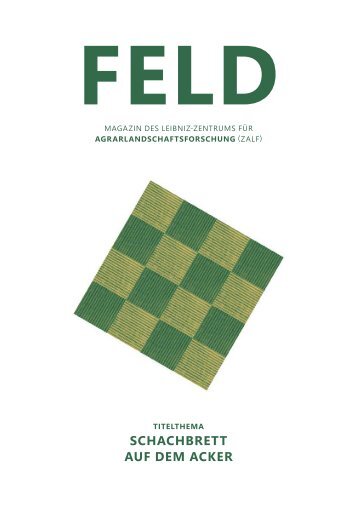
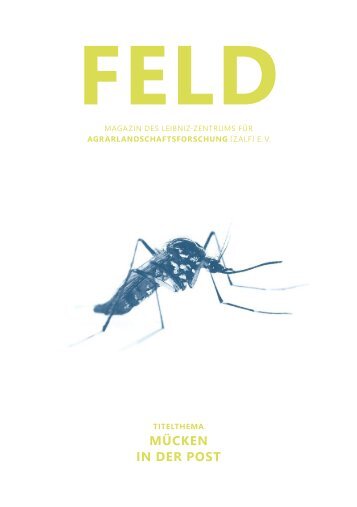
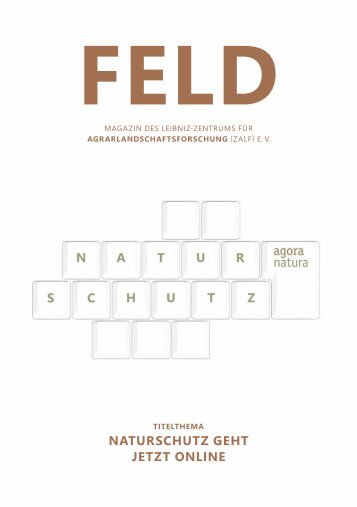
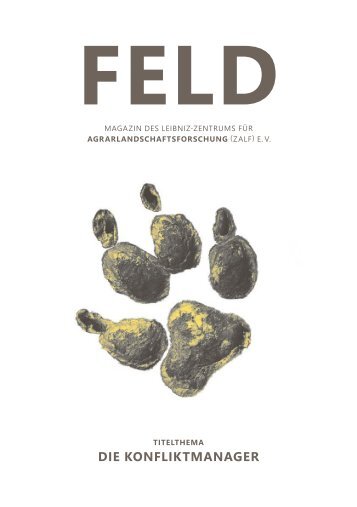
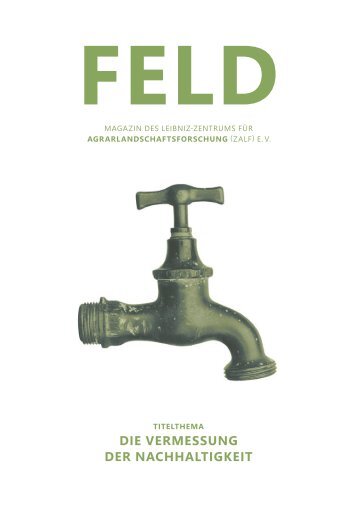
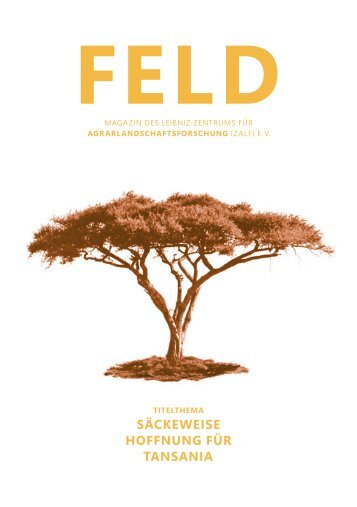
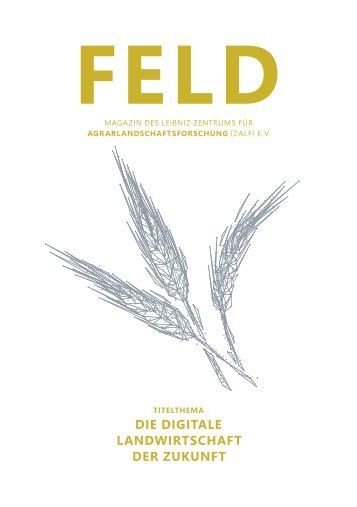
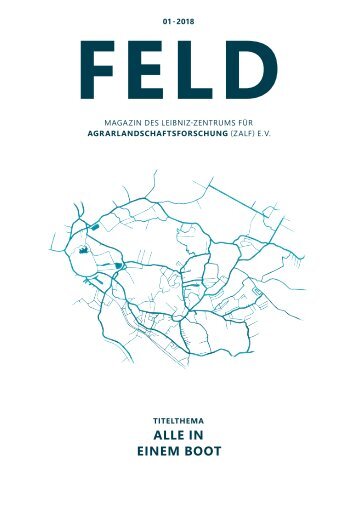
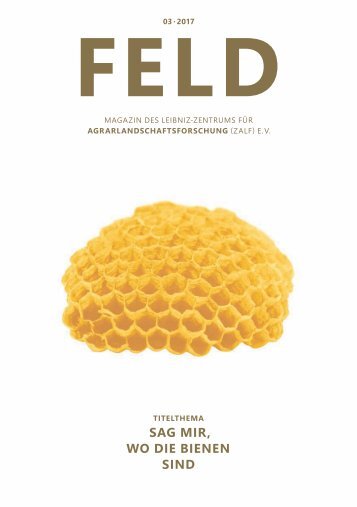
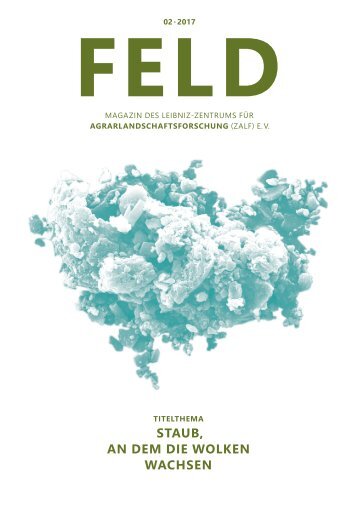

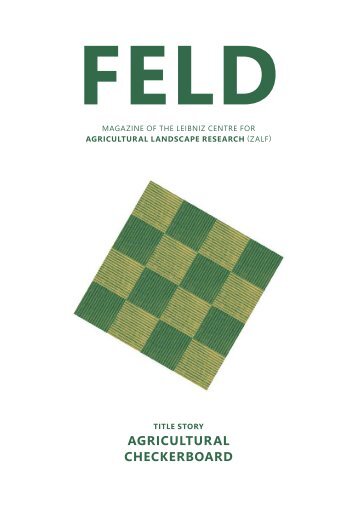

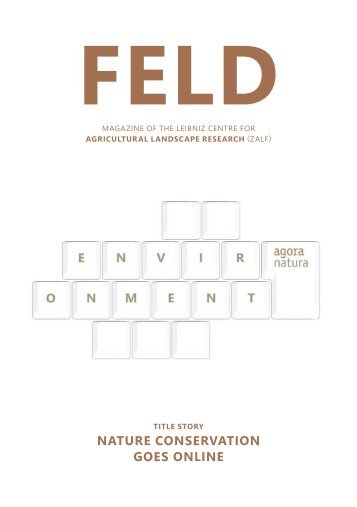








FOLLOW US
Twitter
Youtube
Instagram
LinkedIn